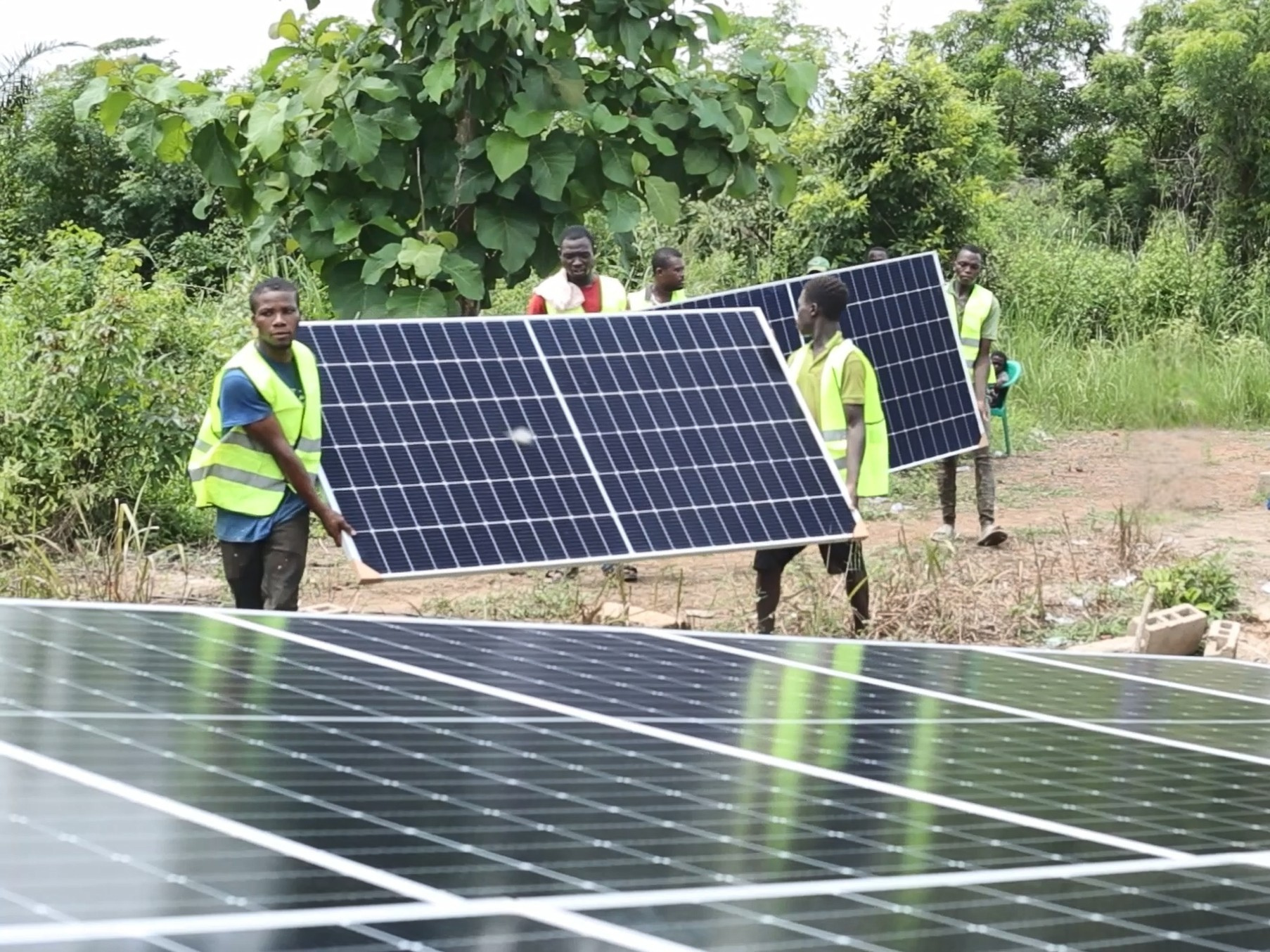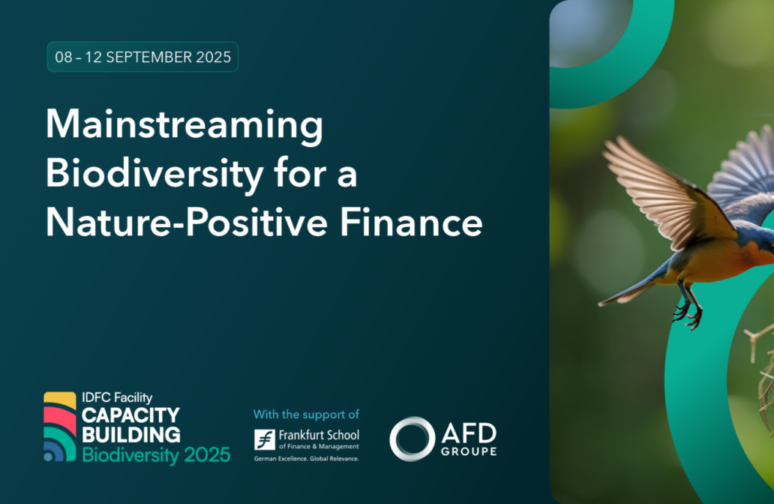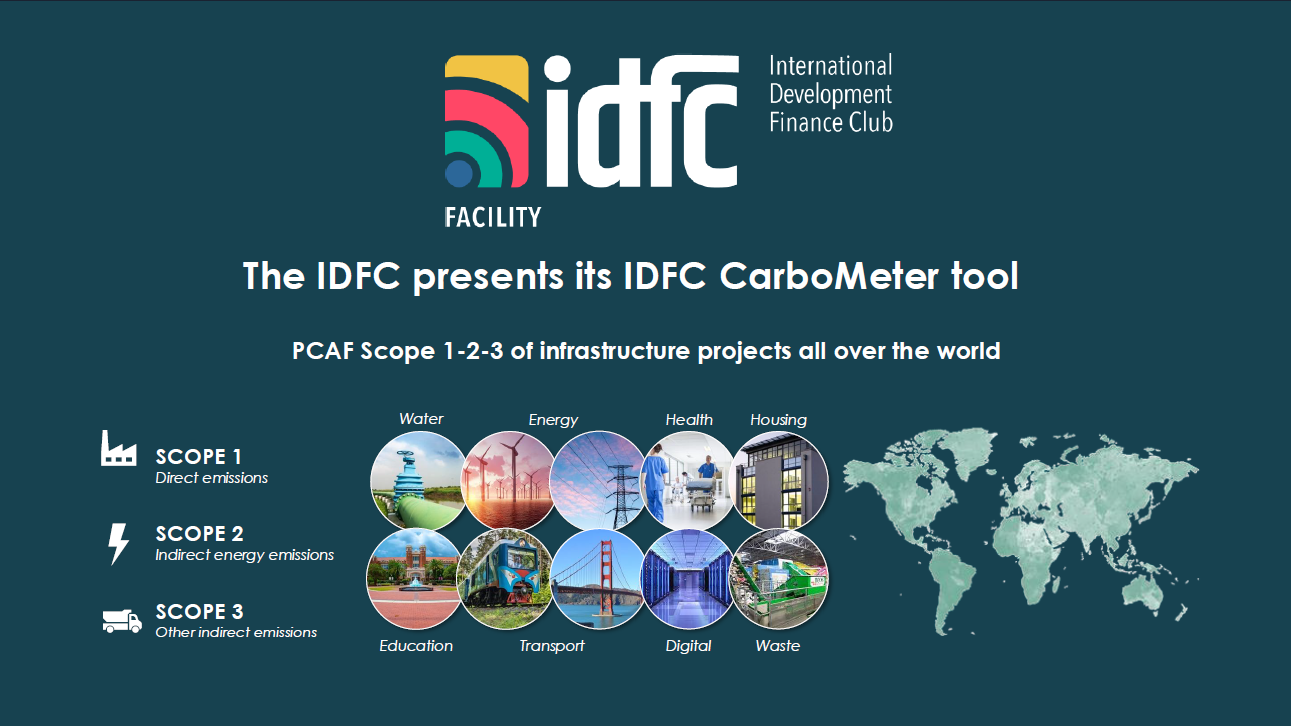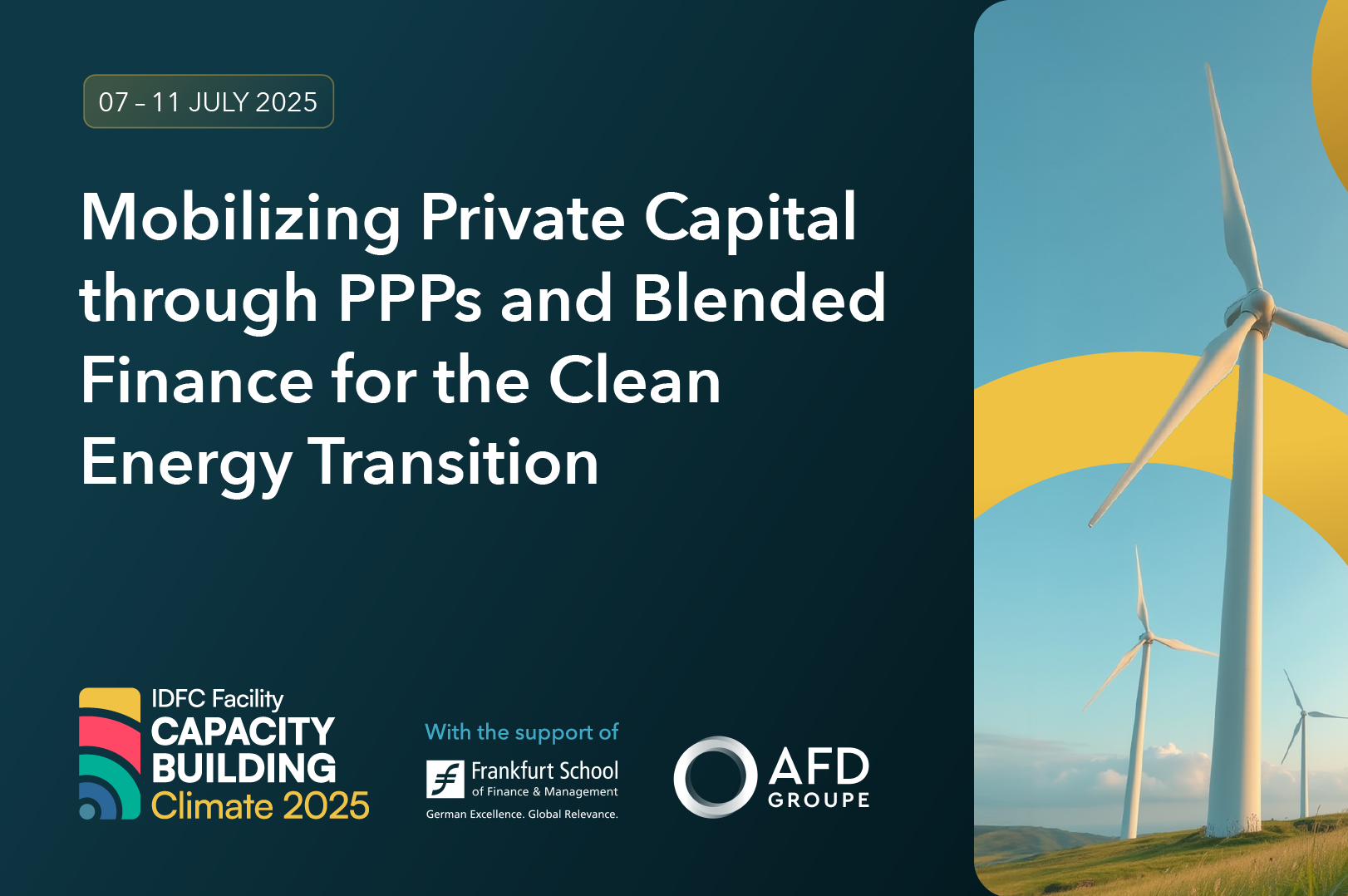
Stories of Impact: BOAD and its Solar Hybridization Project in Togo
20 October 2025Each month, IDFC presents a concrete project from across its network in the series Stories of Impact: IDFC Members on the Ground, highlighting how development banks turn global commitments into real change for people and communities.
Our second episode features the West African Development Bank (BOAD) and its Solar Hybridization Project in Togo, implemented with support from the Global Environment Facility (GEF). By hybridizing diesel engines with solar systems, the project improves access to electricity and modern energy services in 50 rural villages, strengthening resilience, reducing emissions, and empowering local communities.
Discover more in the videos and interview below.
- What development issue is being tackled?
BOAD: Although Togo is a low emitter of greenhouse gases, it is already experiencing the effects of climate change. To limit the rise in temperatures to 1.5°C, in line with the Paris Agreement, the country is relying on renewables such as photovoltaics and is committing to low-carbon development.
Between 1961 and 2012, Togo recorded a rise in temperatures (+1°C) and a decline in rainfall, leading to droughts and floods. Climate scenarios project further increases in temperatures and rainfall by 2025 and 2100. These changes exacerbate food insecurity, poverty, and environmental degradation. National greenhouse gas emissions doubled between 1995 and 2010, with a growing contribution from the energy sector.
All of these factors heighten the vulnerability of the population, particularly in rural areas. In 2013, the Togolese Government, with support from BOAD, launched the Grassroots Development Support Program (PRADEB) to improve rural incomes and social services (education, health, water) through expanded access to energy services provided by multifunctional platforms (PTFM), which rely mainly on diesel. However, diesel is costly and emits greenhouse gases, undermining both the climate and the profitability of PTFMs.
- What specific financing or technical assistance did your institution provide?
BOAD: BOAD—supported by the Global Environment Facility (GEF)—initiated a project to hybridize diesel engines with solar systems (PHMD-PTFM) to curb climate stressors, notably greenhouse gases and fine particulates. The project’s overarching goal is to improve access to electricity and modern energy services in 50 villages in Togo by deploying solar technologies. It also seeks to strengthen policy, institutional, and financial frameworks to promote renewable energy.
The project is financed by a GEF grant of US$3 million. It primarily targets the populations of the 50 beneficiary villages, estimated at 62,500 people (an average of 1,250 per village). Each beneficiary village is typically bordered by about three neighboring villages.
- What outcomes have been achieved so far?
BOAD: The project has hybridized 17 PTFMs in two regions of Togo with photovoltaic systems and has installed drinking water supply and irrigation water systems powered by solar pumping in 17 rural communities. It has:
– created income-generating activities (IGAs) and micro-enterprises for 90 people, including 38 women;
– facilitated the coaching of 50 groups totaling 1,414 people (of whom 829 are women) by the Institute for Technical Advisory and Support (ICAT) of the Ministry of Agriculture, Village Hydraulics and Rural Development
– and trained 27 national experts and 77 technicians in the planning, design, and implementation of photovoltaic systems, as well as 104 local artisans in the maintenance of installed equipment.
In addition, post-literacy evening classes supported by solar streetlights have benefited 1,072 people, including 874 women, in the target rural areas. Broadcasts on local media (radio, television, and press) about the benefits of solar PV have fostered collective awareness and a lasting shift in behavior toward renewable energy. Over the long term, a notable impact is expected across sectors—particularly agriculture—by encouraging more sustainable and energy-efficient practices.
The project has had a strong impact on women and girls, the main users of PTFMs (mills, water, etc.). Before the platforms were installed, they faced significant challenges meeting needs related to cereal milling, sharpening millstones, and charging devices. The platforms have markedly improved their daily lives, reducing time and travel constraints that previously could take an entire day. Savings on transport and milling service costs (all else equal) have generated monetary gains, which are used for other social expenses (schooling, health, participation in community events—weddings, funerals, baptisms, etc.).
In addition, a 23% difference was observed between the average CO₂ emissions measured in rooms housing hybridized platforms and those that are not. This gap is explained by diesel usage time: hybridized platforms run on diesel for four hours (16:00–20:00), whereas non-hybridized platforms run on diesel for twelve hours (08:00–20:00).
- How does this initiative support BOAD’s broader commitment to climate action?
BOAD: By joining the Climate Action in Financial Institutions initiative, BOAD committed—among other goals—to managing climate risks and promoting climate-smart objectives. These principles guided the Bank’s action by mobilizing a partner such as the GEF for this project—originally supported under PRADEB by the Bank in the 2010s—which has enabled a paradigm shift in access to clean energy for sustainable socio-economic development in rural Togo. This model has strong replication potential in other BOAD member countries.


